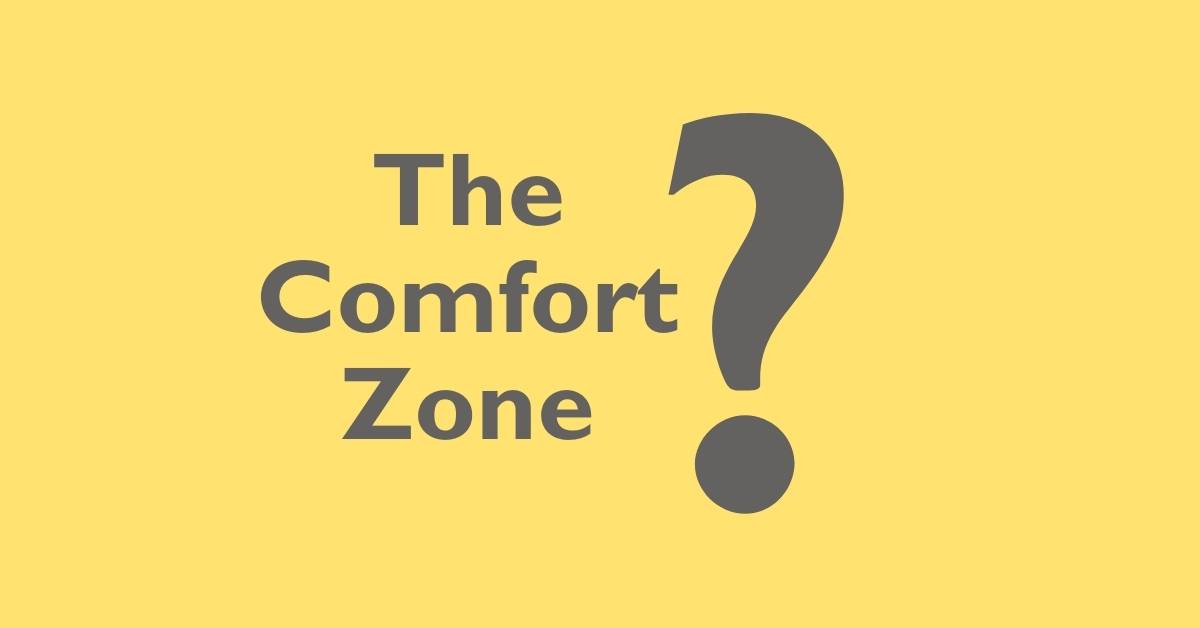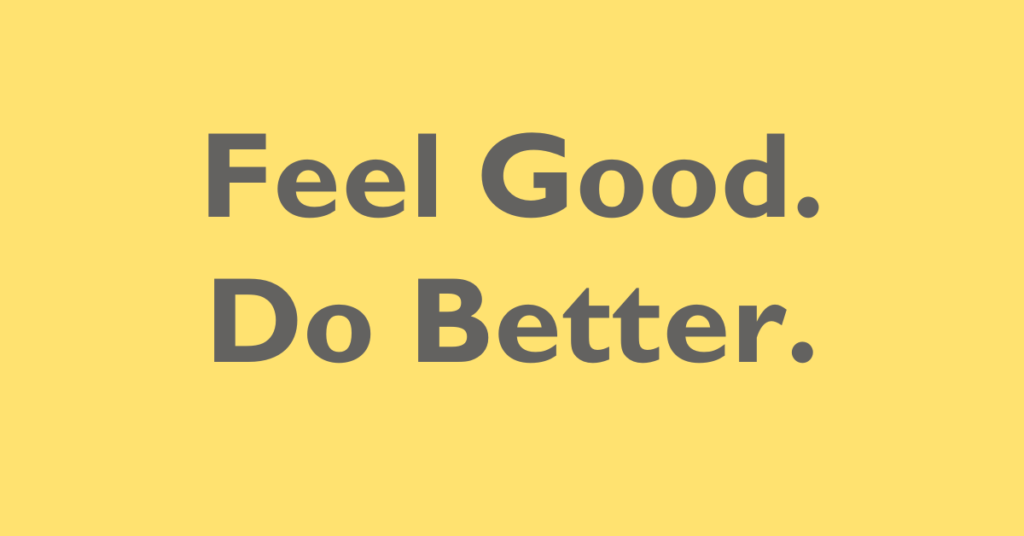We all have that environment we love to be in and the activity we love to do. Whether in our bed watching Netflix or on the couch scrolling through Instagram. Maybe we’re happy with the friends we already have and don’t want to make more. Or the one restaurant we always eat at.
Of course, we’re talking about the infamous Comfort Zone. It’s that all too familiar cliché we have all heard about. It’s not an everyday topic, but I’m sure it has come up in conversation once or twice before. You’ve probably been told to stay far away from it. But we aren’t getting into that yet.
Initially, I planned to do one massive post about The Comfort Zone, aiming to go in with a bit more depth. During my research and thought, I realised there is much more to it. So I’ve decided to split this into 3 separate posts, each covering a different element:
1. What is the Comfort Zone exactly?
2. Is The Comfort Zone Really that Bad?
3. How Do you Expand your Comfort Zone?
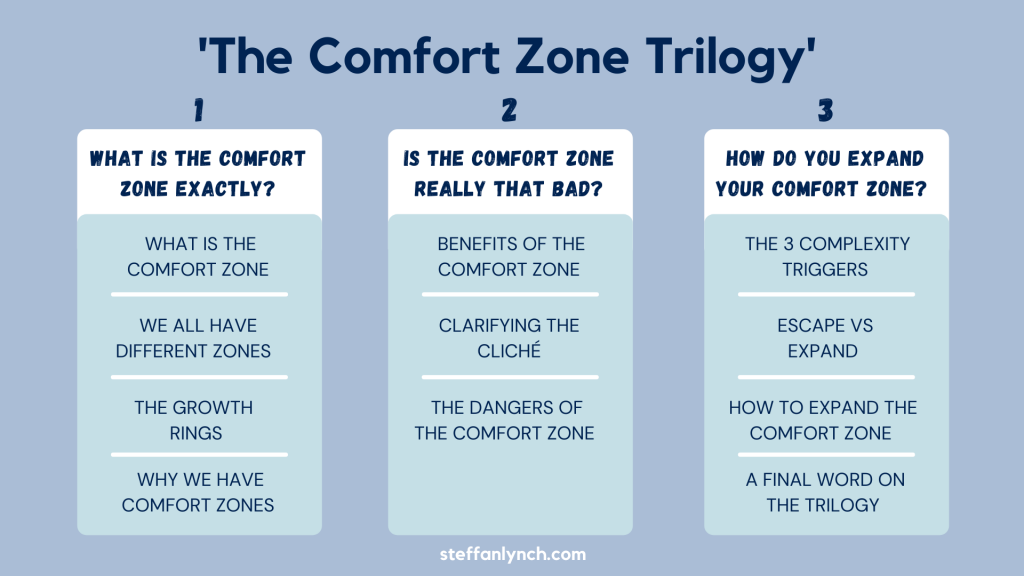
Consider it ‘The Comfort Zone Trilogy’; the topic is broken down into the ‘what’, ‘why’ and ‘how’. Today we’re starting off with ‘what’, understanding the comfort zone in itself.
What is The Comfort Zone?
The comfort zone is a psychological construct that describes the environment where we experience minimal stress, anxiety and vulnerability. The Comfort Zone is a state of being comfortable. It’s a state of order when your life is predictable for the most part. It’s familiar, easy and painless. It’s where everything you do isn’t new or difficult.
Everything we can do falls under two categories: inside our comfort zone or outside. Things within our comfort zone are easy; we can do them without much thought, and they require little to no effort. In fact, we’re often not even aware we’re doing them. You know when you realise you’ve spent an hour mindlessly scrolling through Instagram?
On the other hand, those activities outside the comfort zone aren’t easy and familiar. They’re most likely challenging and foreign; they’re physically and/or mentally strenuous and require more effort. There’s a mental resistance to start these activities, let alone finish them.
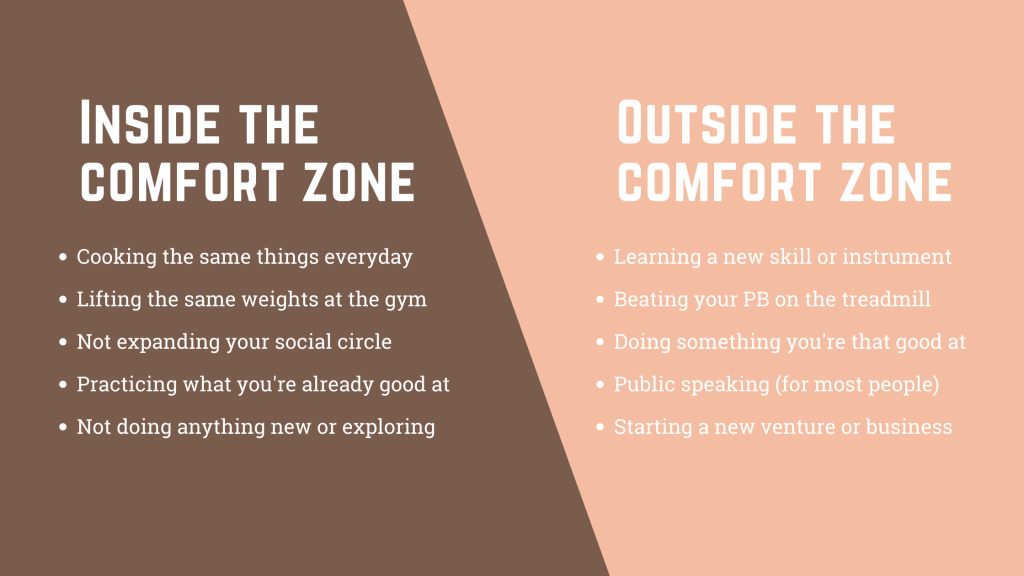
Except it isn’t a physical thing. As is the case often in life, it’s all in our heads. It has nothing to do with whether we can or can’t. It’s not a matter of capability. It’s more to do with what is easy and provides the least resistance. The further something is outside the comfort zone, the more resistance there is.
However, there is no correlation between something in or out of your comfort zone and it being ‘good’ or ‘bad’. Some things may be within your comfort zone that you should continue doing, such as walking. Other things outside that zone, like playing with fire, should remain there.
Joey Schweitzer, from Better Ideas, puts it like this in his video on the matter:
"...the Comfort Zone is terrible at telling you what's good and what's bad for you; what activities you should adopt into your life and what activities you should avoid."
Joey Schweitzer Tweet
We all have Different Zones
I have to add that everyone’s comfort zone is different. It varies based on character, ability and many other factors.
• Someone like me, who is doing my driving lessons, has to dedicate all my attention and efforts to drive. But for my dad, who’s been driving for 30+ years, it’s a piece of cake. We both have to do the same driving, but the effort required and the ease of doing so are polar opposites.
• In the UK, there are around 10million gym members. For some, they just want overall fitness and health. Others are aiming to get bigger, stronger or slimmer. Others might be training for a specific event or sport. While they’re all training under the same roof, some are bound to do things they find easy, whereas others will struggle.
All of us have our own Comfort Zones. We have varying strengths, weaknesses, skillsets and capacities. We all have things that are easy and things that are difficult. It is a testament to our uniqueness.
The Growth Rings
Bill Eckstrom developed an excellent notion called The Growth Rings. (He even done a TED Talk about them)These rings categorise the different environments we live and work in. They give a comprehensive and holistic view of the different environments based on order and predictability. Stagnation has the most order and predictability, and Chaos has the least.
Let’s explore each ring in more detail.
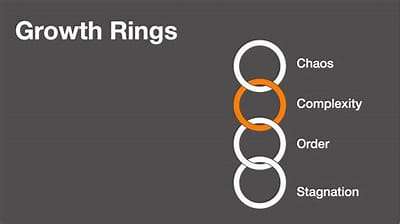
Stagnation
This ring is the highest level of predictability, stifled creativity and little independent thought. This is a low-growth and low-performance environment. Often we’ll have to follow many steps and minutia to get things done.
Examples of this environment include some jobs that are repetitive and mundane. Or maybe you work without space or freedom to be creative or free-thinking.
Chaos
Chaos is the absolute opposite of Stagnation, characterised by the complete absence of order, structure or predictability. You have no control over what goes in or what comes out. Chaos is induced internally within our own minds or externally through events we have no control over. It’s not a state anyone wants to be in.
Examples of Chaos environments are natural disasters and domestic or family emergencies.
Order
This is the level just above Stagnation. In this, you know the outcomes. You know the inputs and outputs; things are relatively predictable. You have the space and capacity to challenge your norm, but you don’t. This is where you’ll find the infamous Comfort Zone.
For example, you go to the gym, but you lift what you know you can. You don’t try to push yourself or break a sweat. Yes, you worked out. Yes, you went to the gym. But did you really challenge yourself? Or did you just do what you already can? You didn’t exceed your capacity, and your muscles won’t grow.
Complexity
Finally, we have Complexity, sitting in-between Order and Chaos. In Complexity, we challenge that order and familiarity. We transcend the norm, and the predictable becomes unpredictable. It becomes a territory we’re no longer accustomed to, which causes discomfort.
For example, this includes starting a business or entering a new industry. Or students who move out to university and live by themselves. It’s probably, their first time having serious bills to pay and providing for themselves.
In reference to the previous example, Complexity is constantly improving our personal best. Although it’s doable, and they often get help, it’s unfamiliar and confronts our abilities.

Why have a comfort zone in the first place?
Okay. So we can understand things more holistically and see where the comfort zone fits in. But why do we have them in the first place?
On the one hand, they’re our safe place. The routine gives us a feeling of stability and confidence. The fact that outcomes are predictable and we have a sense of control makes us feel safe. We have no need to worry or panic. We can breathe easy and be free from the unknown.
For example, jumping out of an aeroplane is probably out of your comfort zone because it conflicts with fear. You might be anxious about all the things that could go wrong. Or you’re like my dad and believe your feet should be firmly planted on the ground.
But I also believe we have them because we are protective over our identities, beliefs and insecurities. As harsh as it sounds, some of us are fragile. We’re hyper-protective of our ego, so we wouldn’t do anything to jeopardise it. We may not want to challenge our abilities in case we ‘fail’ or look incapable to others. The comfort zone is void of any threats to our beliefs and perspectives on ourselves and the world.
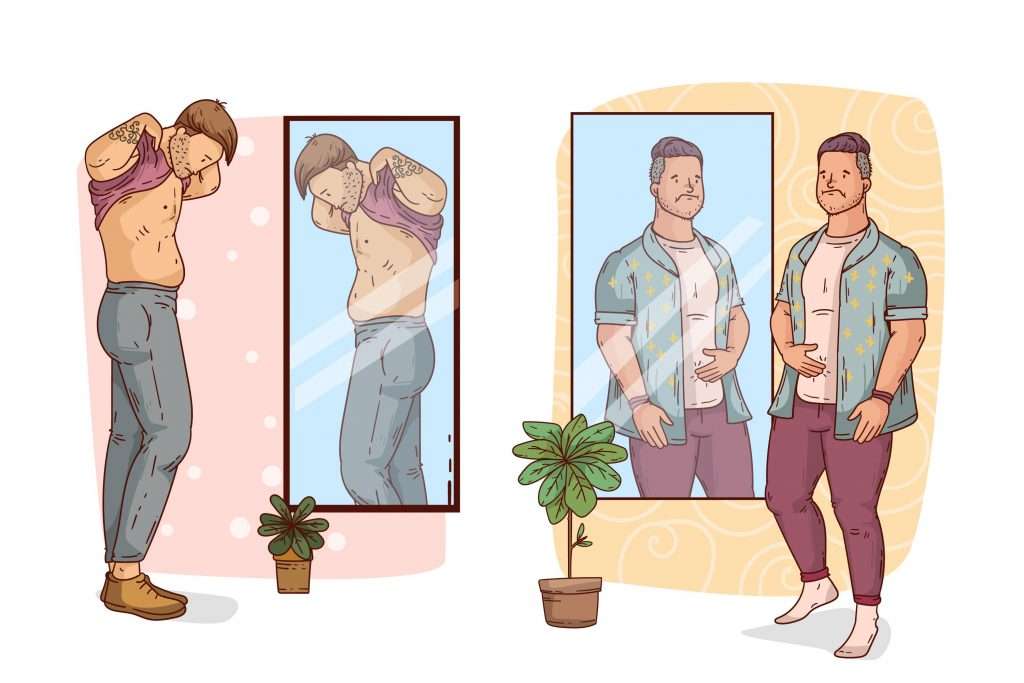
Someone may have a business idea or want to change career fields. But they’re doubtful; they’re not sure if it will work. They worry they may look like a failure to their family or have to start over in their career. So they choose to stay where they are. They don’t stay because they want to; they stay because they know they can.
Abigail Brenne, the author of Transitions, says it like this:
“Being in one’s comfort zone implies familiarity, safety, and security. It describes the patterned world of our existence, keeps us relatively comfortable and calm, and helps us stay emotionally even, free from anxiety and worry to a great degree. Creating a comfort zone is a healthy adaptation for much of our lives.”
Simply put, we have comfort zones because we are human. What do you think? Let me know in the comments below!
